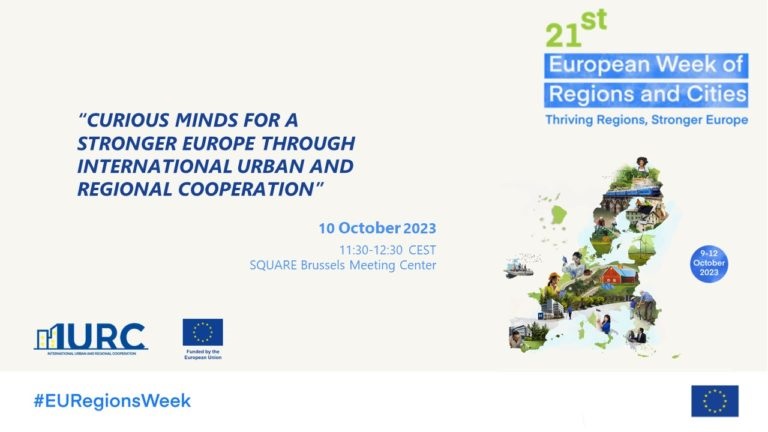The evolving landscape of city and regional projects increasingly underscores the value of international cooperation. As the industrial era shifts, cities and regions confront novel challenges requiring innovative solutions. In recognising this, the IURC programme, during its session at the 21st EU Regions Week in Brussels, emphasised the immense transformative potential of international partnerships. This article delves into the key takeaways, methodologies, shared experiences, and the broader impact of this IURC event.
Interest in the event was evident, with actual attendance surpassing the registered participants. Attendees represented a cross-section of IURC cities, regions, non-profits, and other entities deeply invested in international cooperation.
The essential role of cities
The IURC programme illuminated the essential roles cities and regions play in various collaborative spheres – local, national, and global. The session in Brussels shed light on how international cooperation offers diverse perspectives, stimulates the sharing of experiences, nurtures capacity, and paves the way for extensive global networking. European networks, notably EURADA and Eurocities, were spotlighted for their contributions in fostering international collaborations and the continual exchange of best practices. Attendees left not just as passive receivers of information but transformed into proactive ‘expertise-givers’.
Experiences unveiled
Delegates from various geographical areas, including Hamburg, North East Romania, Genova, Krapina-Zagorje County, Sisak Moslavina County, Murcia, and Extremadura, presented their unique experiences in international cooperation:
- Hamburg underscored aligning with similar partners, emphasising digitalisation, urban mobility, and collaborations with cities like Melbourne and Canberra.
- Krapina-Zagorje County showcased its Digital Innovation Hub for healthcare and the influences from China on its health industry innovations.
- North East Romania highlighted the benefits of IURC’s interregional pairings, touching on various topics from urban mobility to circular economy expertise.
- Murcia detailed its enriching collaboration with a Chinese city, emphasising cultural exchanges and the enhancement of urban sustainability.
- Genoa detailed its transformative journey with Mar del Plata and the digitisation of public services.
- Sisak Moslavina County spoke of its eye-opening visit to China’s largest e-sport arena and the potential for e-sport development in Croatia.
- Extremadura shared insights from its collaboration in Piura, highlighting initiatives in the fields of medicine, technology, and innovation.
Real-world impacts
The session’s repercussions extend far beyond its duration. Knowledge exchange and capacity-building activities grounded in Regional Innovation and Smart Specialisation Strategies equip regions with a refined knowledge arsenal. These insights lead to more informed, innovative approaches to regional and urban development.
In the long run, such sessions not only catalyse knowledge exchange but also pave the way for durable partnerships that can shape regional and urban economic landscapes. By spotlighting areas of specialisation and driving innovation, these partnerships fortify the pillars of a resilient Europe, truly embodying the spirit of ‘Curious Minds for a Stronger Europe.’
Read the full takeaways here.
